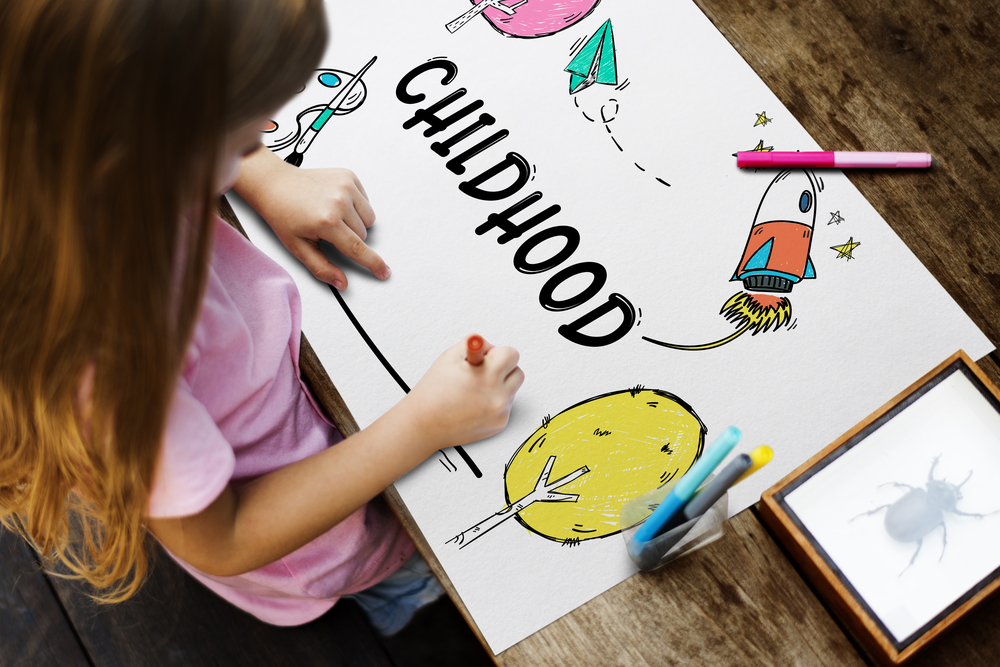Understanding syllables Worksheets for Ages 4-8
8 filtered results
-
From - To
Welcome to our "Understanding Syllables Worksheets" designed for children ages 4-8! These engaging and interactive worksheets help young learners grasp the concept of syllables, a fundamental skill in developing reading and writing abilities. With a variety of activities including counting syllables in words, sorting, and matching games, children will enjoy practicing their phonemic awareness in a fun, hands-on way. Perfect for home or classroom use, our worksheets cater to diverse learning styles and encourage essential early literacy skills. Download the worksheets today and support your child’s journey towards effective communication and reading proficiency!
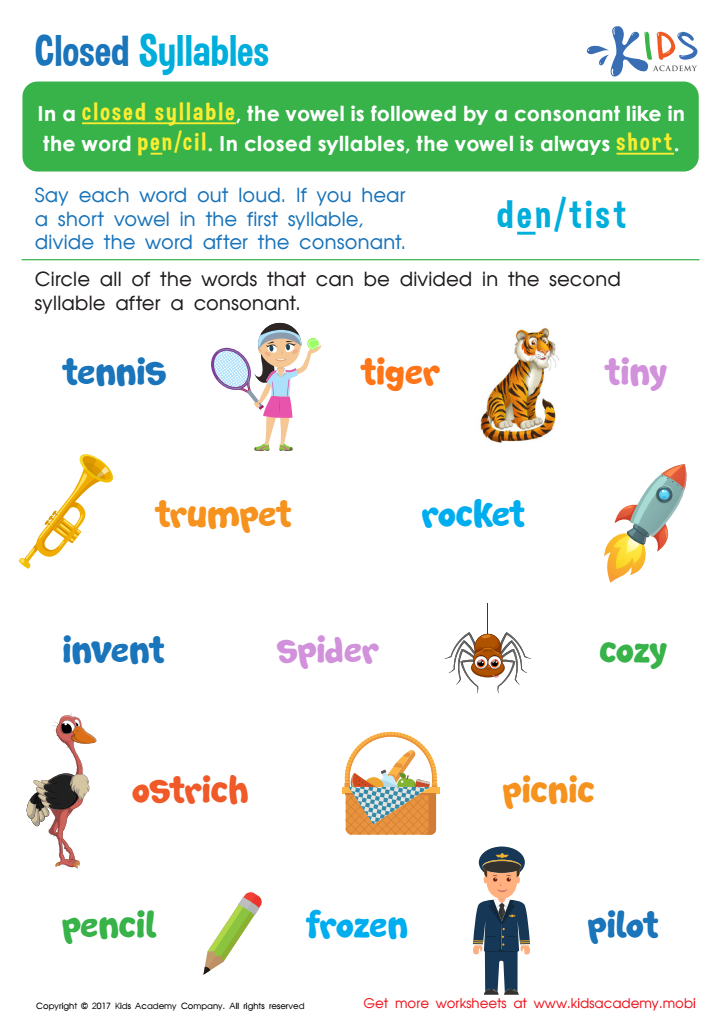

Closed Syllable Spelling Worksheet
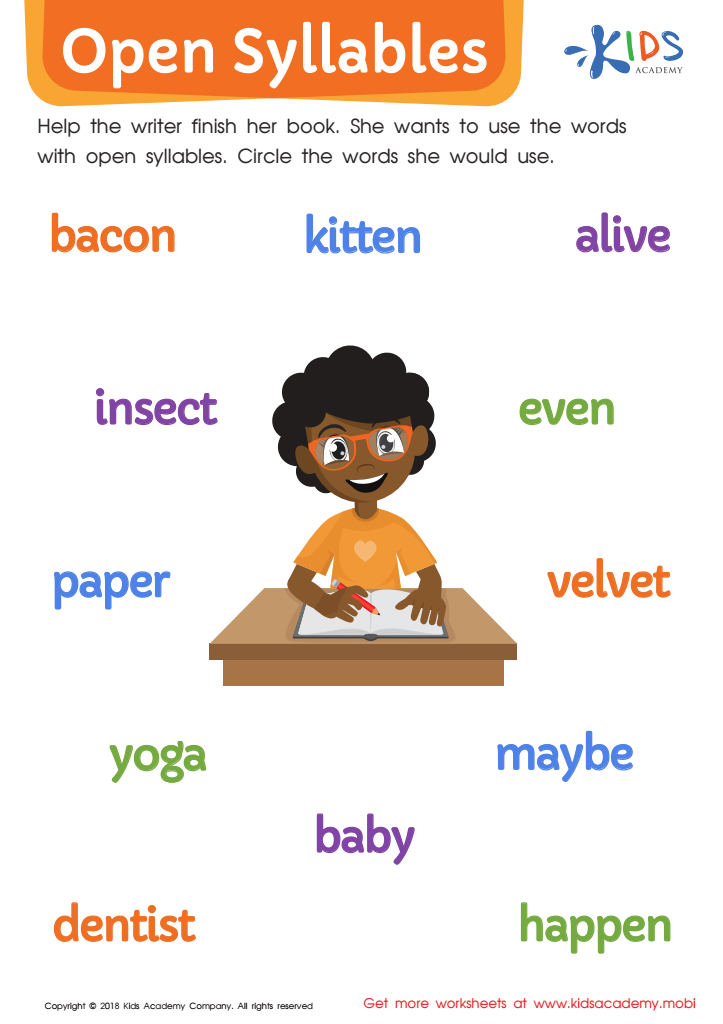

Open Syllables Worksheet
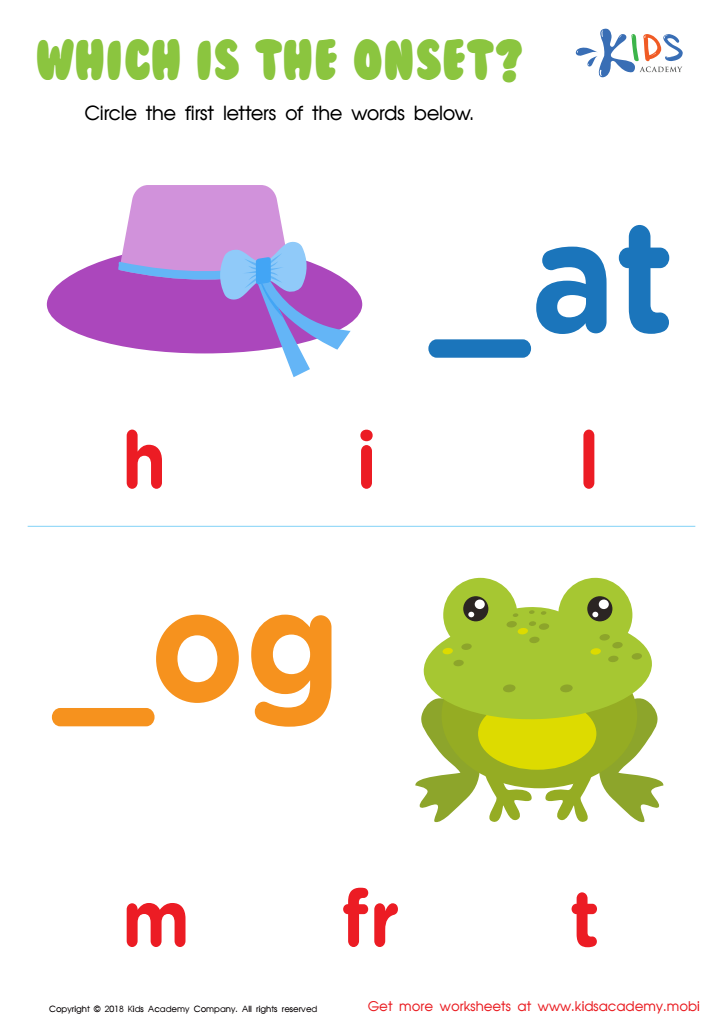

Which Is the Onset? Worksheet
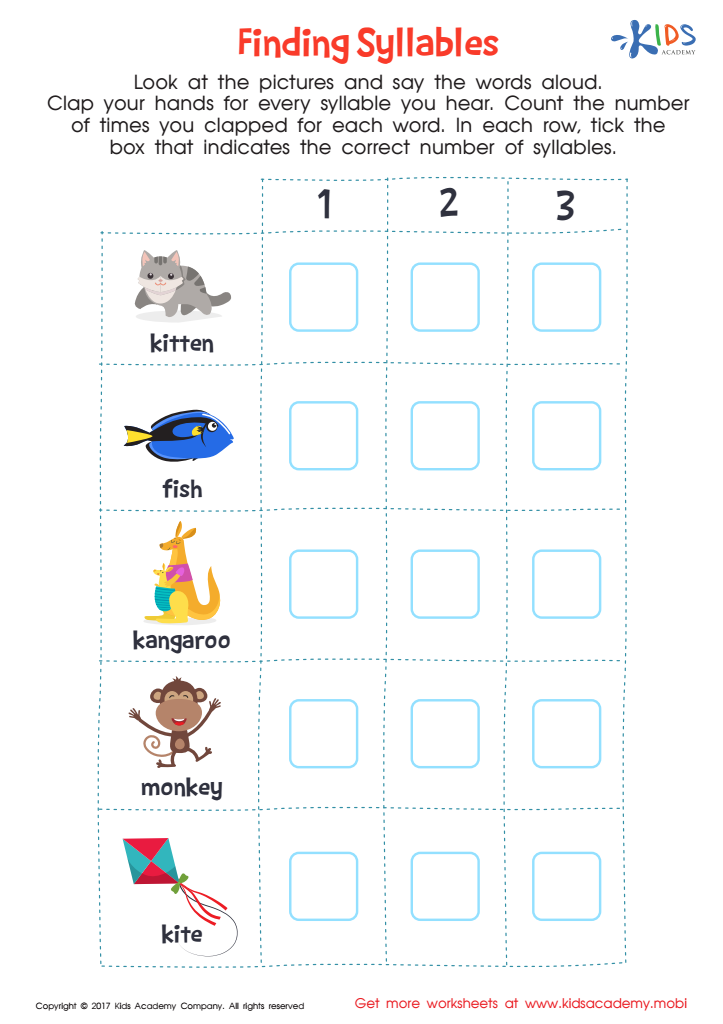

Finding Syllables Word Structure Worksheet
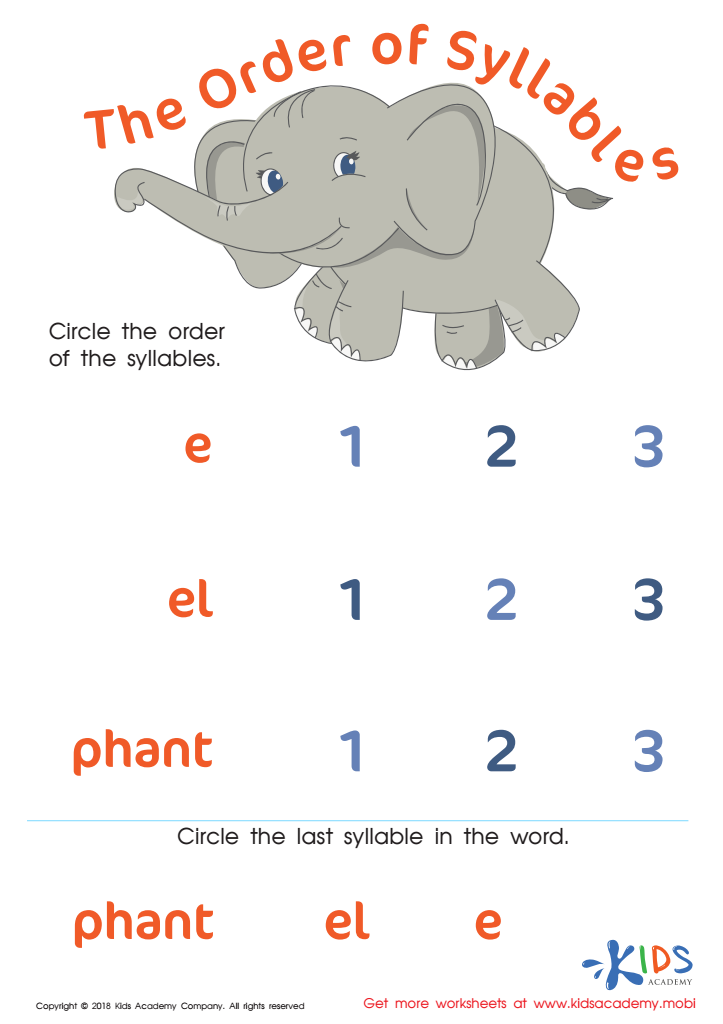

The Order of Syllables Worksheet
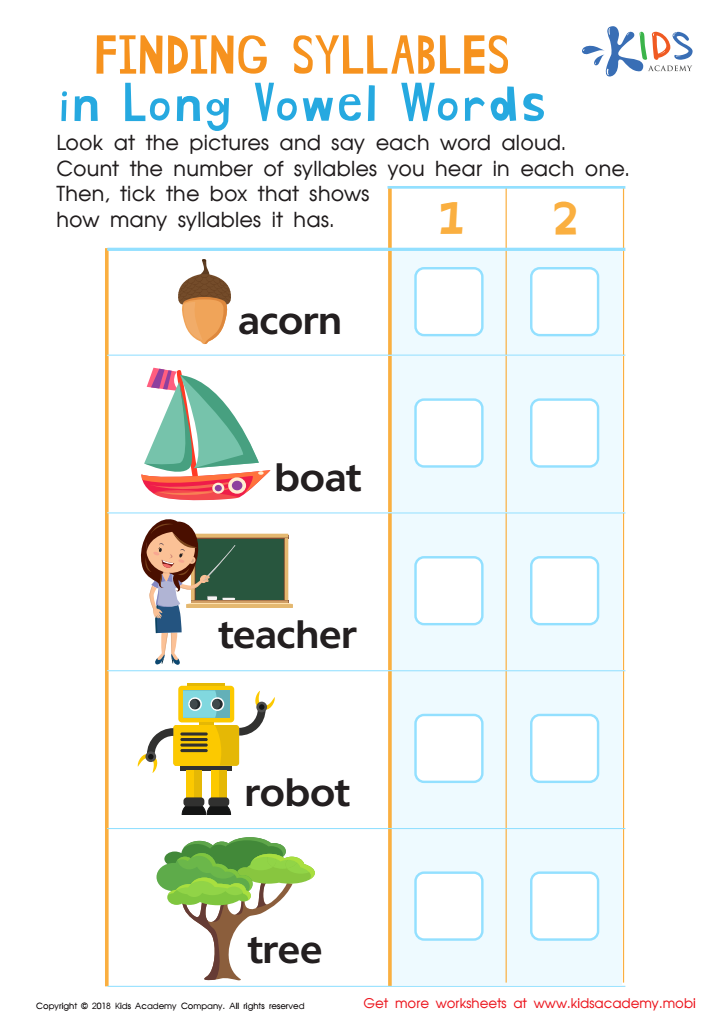

Finding Syllables in Long Vowel Words Worksheet
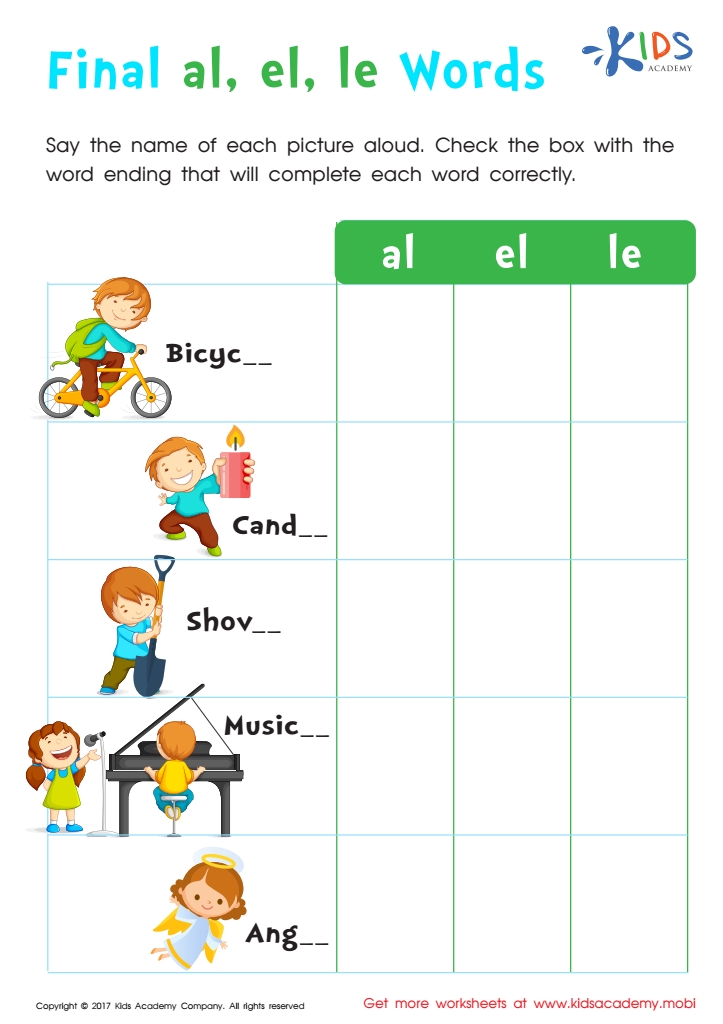

Spelling Words Ending with –le, –el and –al Worksheet
Understanding syllables is fundamental for children ages 4-8 as it lays the groundwork for effective reading and writing skills. Mastering syllables enhances phonemic awareness, which is the ability to hear, identify, and manipulate sounds—the building blocks of literacy. When children can break words into syllables, they not only improve their decoding skills but also boost their spelling abilities. This understanding helps them read new and unfamiliar words with confidence.
Teachers and parents play a crucial role in this learning process. By engaging children in playful activities such as clapping out syllables or using songs and chants, they make learning enjoyable. Recognizing syllables also aids in vocabulary acquisition, as it encourages children to explore word structures and meanings. Furthermore, it improves their verbal communication by teaching them to articulate words correctly, fostering better speaking skills.
Ultimately, a solid grasp of syllables contributes to a child's academic success, boosts self-esteem, and builds a lifelong love for reading. By prioritizing syllable understanding, parents and teachers equip children with essential tools that can transform their literacy journey, making it both effective and enjoyable.
 Assign to My Students
Assign to My Students

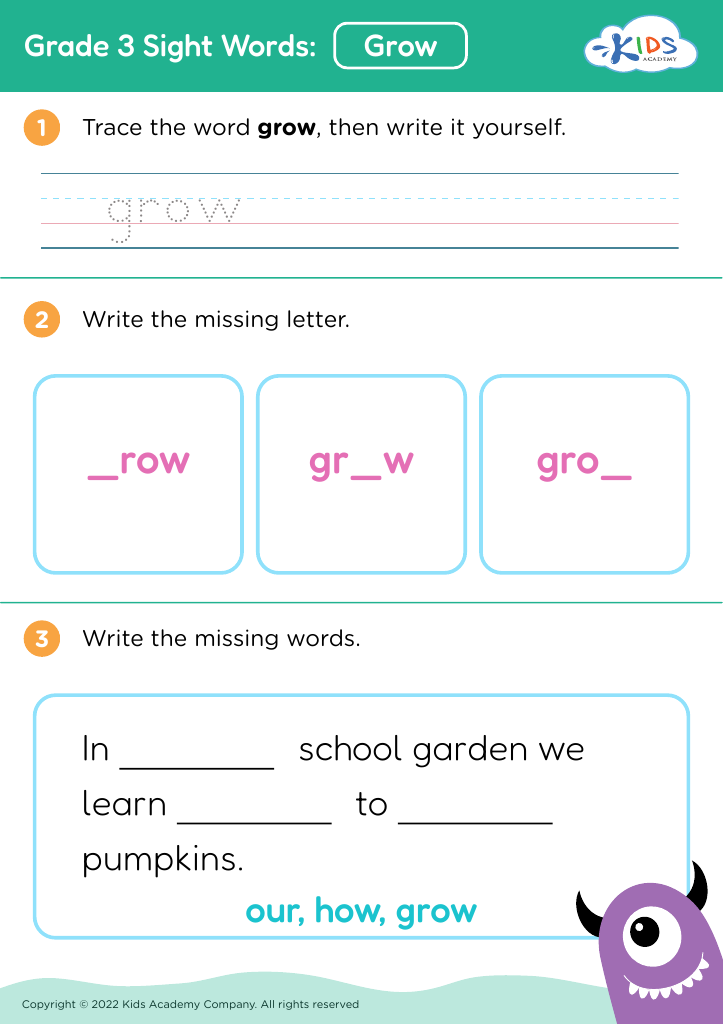






.jpg)

